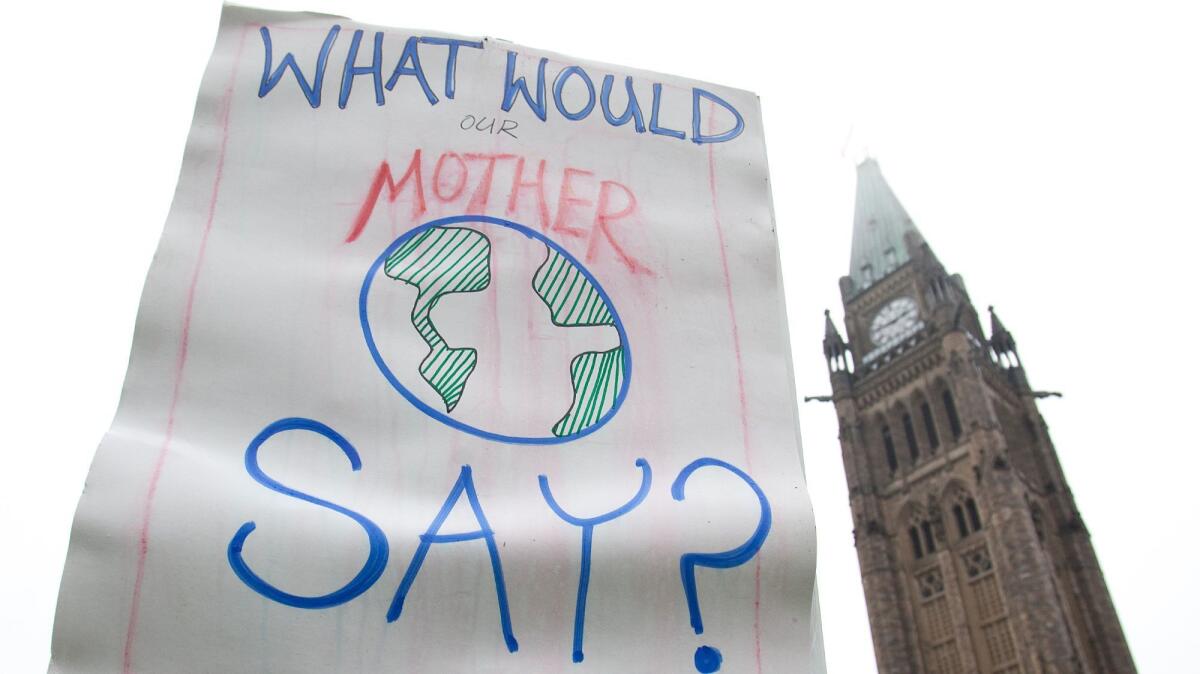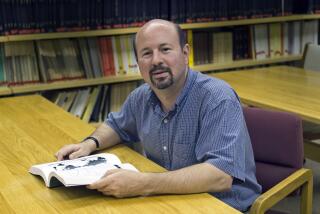Column: Bret Stephens just trolled the left with his supposed climate change denialism

- Share via
The last weekend of April delivered one of the more enjoyable spectacles of 2017. It wasn’t Donald Trump’s tent-revival rally in Pennsylvania. Nor was it the cotillion of self-congratulation known as the White House Correspondents’ Dinner. It wasn’t even the People’s Climate March, which begged for some Monty Pythonesque splinter factions – the March for People’s Climate, Climate Marchers for People, whatever.
No, the most amusing show over the weekend was the collective case of the vapors across the liberal left establishment over Bret Stephens’ first column at the New York Times on the perils of certainty, particularly on the topic of climate change.
For the record:
1:38 a.m. Jan. 23, 2025This column originally claimed that Stefan Rahmstorf, a prominent German climate scientist, wrote a letter to the New York Times attacking Bret Stephens’ column without addressing the specifics of that column. Actually, Rahmstorf’s sent his letter before the column was published. He was writing more generally about Stephens’ career.
Until recently, Stephens was a columnist for the Wall Street Journal. But as that august opinion page made peace with the reality of a Trump administration, Stephens held out like one of those Japanese soldiers who didn’t get word that World War II was over (a position I can sympathize with somewhat). The scuttlebutt is that’s why he jumped ship – or was pushed – to the New York Times.
So what was so funny?
First, there was the substantive reaction.
As a fellow columnist, I doff my cap to you, sir.
Stephens wrote that the “warming of the earth since 1880 is indisputable, as is the human influence on that warming.” The work of climate scientists is “scrupulous,” Stephens insisted, and went on to clarify that he does not “deny” climate change.
The reaction? A Slate headline captured it well: “Bret Stephens’ First Column for the New York Times Is Classic Climate Change Denialism.”
When someone says that he is not denying climate change and concedes that it is real, that is “classic climate change denialism”? Huh. What words do we have left for people who call the whole thing a “hoax”? In civil debates, when someone concedes much of your premise, the proper reaction is not to scream “liar!” or “heretic!”
And that brings me to the second, and more amusing, thing about all of this. You’ve been trolled, people.
Recall that Stephens left the Journal because he was swimming against the currents of the Trumpified right. What better way to inaugurate his new column than with a splash, earning back some populist street cred by making liberals set their hair on fire and cause an (alleged) wave of cancelled subscriptions? All the while, he invited hordes of conservatives to defend him and mock his critics.
As a fellow columnist, I doff my cap to you, sir.
It wasn’t hard to trick liberals into going off-sides. In the past, Stephens was a more acid-tongued critic of climate change research. But the column in question was a model of restraint that, when read by non-ideologues and non-combatants, must seem utterly reasonable, even a tad banal.
The Washington Post’s Eric Wemple found it hard to constrain his dismay. “May it suffice to say, however, that the many, many people who care passionately for the planet found it an exercise in climate-change denialism.” He badgered New York Times editorial page editor James Bennet, demanding to know, in effect, why Stephens didn’t write the column Wemple thought he should.
I particularly enjoyed Wemple’s first question: “Please condense the argument that Stephens makes in the piece.”
Wemple’s a clever fellow. I’m sure he understands Stephens’ point about the dangers of certainty, particularly based on sophisticated mathematical models that have been proven wrong in the past.
What I think sailed past Wemple and so “many, many people” was Stephens’ subtler point about the sanctimonious condescension of people who claim to be motivated solely by their passionate care for the planet.
Stephens’ heresy here isn’t in denying climate change; it’s in refusing to concede that one group of people has a total monopoly on defining not just the problem but the acceptable responses to it. Such dissent is not a crime against science; it’s a threat to a guild. And the guild took the bait.
Follow the Opinion section on Twitter @latimesopinion or Facebook
More to Read
A cure for the common opinion
Get thought-provoking perspectives with our weekly newsletter.
You may occasionally receive promotional content from the Los Angeles Times.











